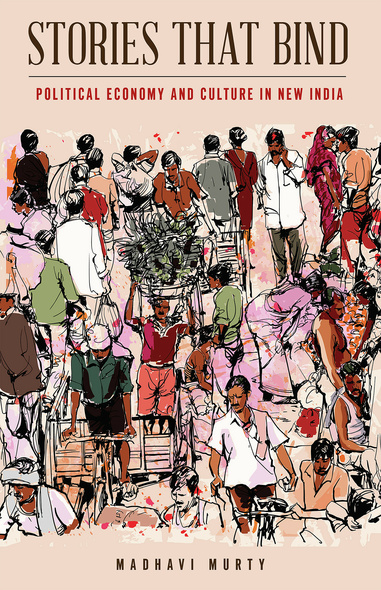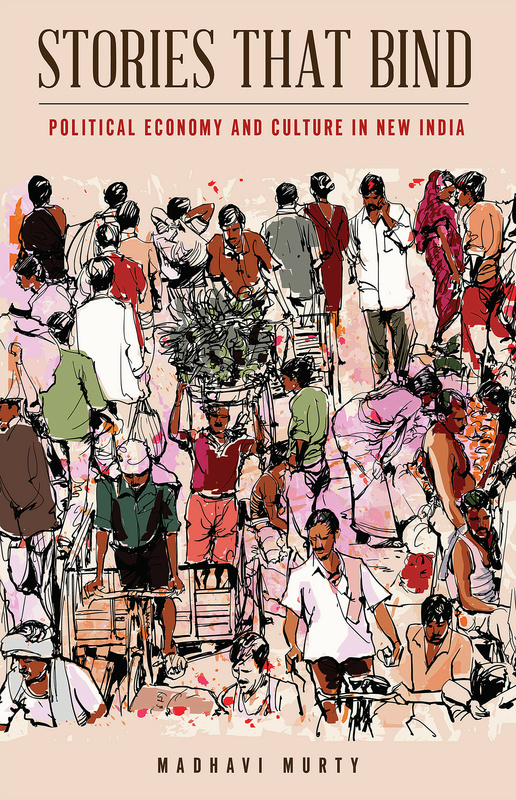
242 pages, 6 1/8 x 9 1/4
Paperback
Release Date:13 May 2022
ISBN:9781978828759
Hardcover
Release Date:13 May 2022
ISBN:9781978828766
Stories That Bind
Political Economy and Culture in New India
Rutgers University Press
Stories that Bind: Political Economy and Culture in New India examines the assertion of authoritarian nationalism and neoliberalism; both backed by the authority of the state and argues that contemporary India should be understood as the intersection of the two. More importantly, the book reveals, through its focus on India and its complex media landscape that this intersection has a narrative form, which author, Madhavi Murty labels spectacular realism. The book shows that the intersection of neoliberalism with authoritarian nationalism is strengthened by the circulation of stories about “emergence,” “renewal,” “development,” and “mobility” of the nation and its people. It studies stories told through film, journalism, and popular non-fiction along with the stories narrated by political and corporate leaders to argue that Hindu nationalism and neoliberalism are conjoined in popular culture and that consent for this political economic project is crucially won in the domain of popular culture.
Moving between mediascapes to create an archive of popular culture, Murty advances our understanding of political economy through material that is often seen as inconsequential, namely the popular cultural story. These stories stoke our desires (e.g. for wealth), scaffold our instincts (e.g. for a strong leadership) and shape our values.
Moving between mediascapes to create an archive of popular culture, Murty advances our understanding of political economy through material that is often seen as inconsequential, namely the popular cultural story. These stories stoke our desires (e.g. for wealth), scaffold our instincts (e.g. for a strong leadership) and shape our values.
In this beautifully written and timely book, Murty explores how popular cultural forms become politically charged. Moving across journalism, film, and other mediascapes, she shows how new forms of storytelling made sense of and won popular consent for majoritarian nationalism in a nation transformed by neoliberal reforms. Rigorously conceptualized and deeply researched, Stories That Bind is a brilliant exemplar of media and cultural studies.
In this beautifully written and timely book, Murty explores how popular cultural forms become politically charged. Moving across journalism, film, and other mediascapes, she shows how new forms of storytelling made sense of and won popular consent for majoritarian nationalism in a nation transformed by neoliberal reforms. Rigorously conceptualized and deeply researched, Stories That Bind is a brilliant exemplar of media and cultural studies.
MADHAVI MURTY is an assistant professor in the feminist studies department at the University of California, Santa Cruz.
Introduction: Spectacular Realism and Political-Economic Change
1 The Development Story: Caste, Religion, and Poverty in “New” India
2 Iconicity: Moving between the Real and the Spectacular
3 The Entrepreneur: New Identities for New Times
4 Love in New Times
Conclusion
Acknowledgments
Notes
Bibliography
Index
1 The Development Story: Caste, Religion, and Poverty in “New” India
2 Iconicity: Moving between the Real and the Spectacular
3 The Entrepreneur: New Identities for New Times
4 Love in New Times
Conclusion
Acknowledgments
Notes
Bibliography
Index







